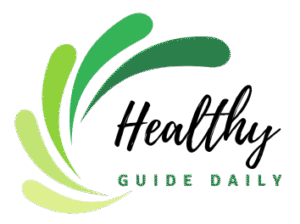New research suggests weight-loss drugs could significantly reduce mortality rates in the U.S., reshaping the landscape of public health.
Story Overview
- GLP-1 weight-loss drugs could cut U.S. mortality rates by up to 6.4% by 2045.
- These drugs target obesity, a key factor in major causes of death.
- The insurance industry is adjusting risk models in response to these findings.
- Success relies on widespread adoption and sustained lifestyle changes.
Impact of GLP-1 Drugs on Mortality Rates
Recent research by Swiss Re highlights the potential of GLP-1 drugs to reduce all-cause mortality in the U.S. by up to 6.4% by 2045. These drugs, initially developed for diabetes management, have been repurposed for obesity treatment due to their appetite-suppressing effects. With obesity identified as a major risk factor for several leading causes of death, including heart disease and certain cancers, the widespread adoption of these drugs could significantly alter public health trends.
Swiss Re’s findings are particularly relevant as the U.S. grapples with high obesity rates, affecting over 40% of adults. The insurance industry is keenly interested in these developments, as reduced mortality rates could lead to lower healthcare costs and altered risk assessments. The report emphasizes the necessity of combining drug use with lifestyle changes to maximize health benefits and ensure long-term adherence.
Watch: GLP-1 Drugs Could Add 6+ Years to American Lives by 2045 – Groundbreaking Study Results
Challenges and Considerations
While the potential benefits of GLP-1 drugs are promising, there are challenges to consider. Long-term adherence and the potential for side effects remain concerns that researchers are actively investigating. The cost-effectiveness of these drugs is also under scrutiny, as insurers and healthcare providers seek to balance accessibility with economic sustainability. The success of these interventions will largely depend on patients’ commitment to sustained lifestyle changes alongside medication use.
Swiss Re executives stress the importance of evidence-based risk assessment in incorporating GLP-1 drugs into healthcare models. The insurance industry is already adjusting underwriting assumptions and claims models in anticipation of these changes. As the adoption of these drugs increases, ongoing research will be crucial to understanding their full impact on public health and mortality trends.
Weight loss drugs could add years to Americans' lives, researchers project:
A new study has discovered that drugs for diabetes and weight loss could significantly reduce mortality for Americans.Researchers at Swiss Re, a reinsurance company in Zurich,… https://t.co/c1fSBFELjc
— Elwin Sidney (@ElwinSidney) September 17, 2025
Future Implications for Public Health
The introduction of GLP-1 drugs represents a significant advancement in obesity management, with the potential to reshape mortality trends in the U.S. and other high-income countries. If widely adopted, these drugs could lead to millions of premature deaths prevented and substantial healthcare cost savings. Beyond the immediate health benefits, the broader societal impact includes shifts in insurance pricing, public health strategies, and pharmaceutical market dynamics.
As policymakers and healthcare providers navigate these developments, the emphasis on comprehensive obesity management—including medication, lifestyle changes, and public health initiatives—will be essential. The potential for GLP-1 drugs to significantly impact mortality rates underscores the need for collaborative efforts across sectors to address the complex challenges of obesity and chronic disease management.
Sources:
GLP-1 Drugs Could Cut Mortality Rates in US and UK, Swiss Re Says
GLP-1 Drugs Seen Reducing US Mortality
GLP-1 Drugs Cut US Mortality
Future of Metabolic Health and Weight Loss Drugs
GLP-1 Drugs May Reduce Mortality by Up to 6.4% in the US by 2045







